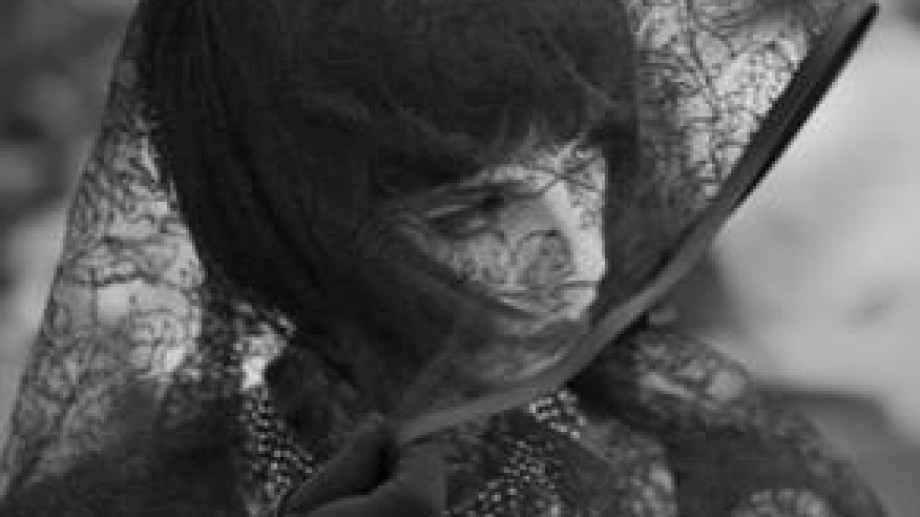
Maribel Verdú in Pablo Berger's Blancanieves
Many of the names in this year's Spanish Cinema Now program might be unfamiliar on first glance. Some are veterans, others first-time filmmakers. Some have come to the festival with honest, unsparing portraits of contemporary life, others with fanastical fables, still others with historical dramas or campy horror yarns. Pieced together, they offer a rich, conflicted view of contempoary Spain—its anxieties, fantasies, and dreams.
The festival opens Friday, December 7 with Pablo Berger's Blancanieves, a revisionist, silent film take on the Snow White legend, shot in luscious black and white and offered up as Spain's official submission for the Best Foreign Language Film Oscar. If the 40 dazzling seconds of the film available online are any indication, be prepared to pick your jaw off the floor of the Walter Reade at least once. Berger's not the only filmmaker here to make a detour into the fantastic or impossible. Marçal Forés's Animals is a menacing tale of teenage life, complete with shady classmates and talking teddy bears. Jorge Torregrosso's The End pits its reluctant heroes against a catastrophe that might, quite literally, be the end of the world. And Javier Ruiz Caldera's Ghost Graduation is about, well, exactly what it sounds like.
Other selections turn a slightly more literal-minded (though no less refined) eye on contemporary Spain. Xavi Puebla's The Cold Call details the personal and moral toll of Spain's changing business world, as seen through the eyes of one harried salesman over the course of 36 hours. Meanwhile, Pedro Pérez Rosado's Wilaya exposes the vast gulf separating contemporary Spain from the extensive community of Sahrawi refugess still stateless after the de-colonization of the Spanish Sahara—the subject, too, of this year's closing film, the Javier Bardem-narrated documentary Sons of the Clouds.

Catherine Deneuve in Luis Buñuel's Tristana
Another handful of this year's films chose to come to terms with the present through the lens of the past. Paula Ortiz's prizewinning Chrysalis traces the alternately tragic and hopeful fates of three Spanish women—in 1923, 1941, and 1975, respectively. It's all takes place under the shadow of the Franco regime, as do Gerardo Herrero's period military thriller Frozen Silence and Benito Zembrano's harrowing, embittered prison-set drama The Sleeping Voice.
Still others tell stories with implications just as great, but smaller scales—among them Carmina or Blow Up, Paco León's picaresque-inspired portrait of his verbose, larger-than-life mother, and Gabriel Velázquez's Iceberg, a haunting look at the hermetic lives of three teenagers. Meanwhile, in Dream and Silence, acclaimed filmmaker Jaime Rosales whittles his field of vision down to two individuals: a wife mourning the loss of her young daughter, and the husband who lost his memory of the girl in the accident which took her life.
Running parallel to the main festival slate is a tribute to arguably the most influental name in all of Spanish cinema: Luis Buñuel. His program is like a warped mirror-image of the rest of the festival: socially-conscious reportage finds its corollary in the biting, decidedly un-objective Land Without Bread, melodrama in the Catherine Denueve-starring Tristana, moral fable in the earthshattering Viridiana. That last film's climactic beggar's banquet remains a potent reminder of the cinema's power to break down and make new—a power that, if the rest of this year's program is any indication, is still alive and well in Spanish filmmaking today.
Spanish Cinema Now runs from December 7 – 16 at Film Society of Lincoln Center. Additional films in the Buñuel in Spain retrospective will screen at the Instituto Cervantes. Planning to take in several films? Save with our Three Film Package!



